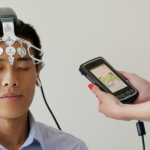Bipolar disorder is a mental health condition that affects millions of people worldwide, yet it remains heavily stigmatized and misunderstood. Misconceptions surrounding the disorder often fuel stereotypes, making it difficult for individuals to seek treatment and receive support. By debunking common Bipolar Disorder Myths and exploring the facts, we can break down the stigma and foster a more compassionate understanding of bipolar disorder.
1 Bipolar Disorder Is Just Mood Swings
Fact: Bipolar disorder is far more complex than everyday mood swings. It involves extreme shifts in mood, energy levels, and activity, which can severely affect a person’s ability to function. These shifts include manic or hypomanic episodes (characterized by elevated, irritable moods and high energy) and depressive episodes (marked by feelings of sadness, hopelessness, and low energy). These episodes are intense and disruptive, often requiring medical treatment.
2 Bipolar Disorder Is Rare
Fact: Bipolar disorder is more common than people think. According to the World Health Organization, around 45 million people globally are affected by this condition. In the U.S. alone, about 2.8% of adults experience bipolar disorder in any given year. Despite its prevalence, many individuals go undiagnosed or misdiagnosed, leading to inadequate treatment and increased stigma.
3 People with Bipolar Disorder Are Always in a Panic or Depressive State
Fact: While people with bipolar disorder experience mood episodes, they also have periods of stability where their mood and energy levels are normal. These periods can vary in length and allow individuals to function well in their day-to-day lives. The belief that people with bipolar disorder are always “up” or “down” oversimplifies the condition and overlooks the complexity of its management.
4 Bipolar Disorder Means You’re Unstable and Can’t Lead a Normal Life
Fact: With proper treatment and management, many people with bipolar disorder live fulfilling, productive lives. Treatment often includes a combination of medication, psychotherapy, and lifestyle changes.
While managing the condition can be challenging, individuals with bipolar disorder can maintain healthy relationships, pursue careers, and achieve personal goals. Stability is possible, especially with early intervention and ongoing support.
5 Bipolar Disorder Is Caused by Personal Weakness or Bad Parenting
Fact: Bipolar disorder is a brain disorder with biological and genetic components. While environmental factors, such as stress or trauma, may trigger episodes in people predisposed to the condition, bipolar disorder is not caused by personal weakness or bad parenting. It often runs in families, suggesting a strong genetic link, and it can affect anyone regardless of upbringing or lifestyle.
6 Medications for Bipolar Disorder Change Who You Are
Fact: Medications used to treat bipolar disorder, such as mood stabilizers and antipsychotics, are designed to regulate mood and reduce the frequency and intensity of mood episodes. These medications do not change a person’s identity or personality.
The goal of treatment is to help individuals regain control over their emotions and lead a more balanced life. When properly managed, medications can make it easier for individuals to live without the extreme highs and lows that characterize bipolar disorder.
7 People with Bipolar Disorder Are Violent or Dangerous
Fact: This is one of the most harmful and misleading stereotypes about bipolar disorder. Most people with bipolar disorder are not violent. The condition does not inherently cause violent behavior. While some people may experience irritability or agitation during manic episodes, this does not translate to violence. The majority of individuals with bipolar disorder are more likely to harm themselves than others, especially during depressive episodes, highlighting the importance of mental health support.
8 Bipolar Disorder Can Be Cured
Fact: Bipolar disorder is a chronic condition, which means there is no cure. However, it can be managed effectively with treatment. Many people with bipolar disorder lead stable, healthy lives by sticking to treatment plans that include medication, therapy, and self-care strategies. Managing bipolar disorder is an ongoing process that requires regular medical attention and support, but it is possible to achieve.
Why is Crucial to Bust Bipolar Disorder Myths?
The stigma surrounding bipolar disorder often prevents individuals from seeking the help they need. Fear of judgment, discrimination, or misunderstanding can make it difficult for people to talk openly about their mental health or access appropriate treatment. Breaking down these misconceptions is essential to creating a more supportive and inclusive society where people feel comfortable discussing their mental health challenges.
How Can Bipolar Treatment in Delhi Help You?
Bipolar treatment in Delhi can offer comprehensive support for individuals struggling with the condition, providing access to expert care and advanced treatment options. Specialized mental health professionals, including psychiatrists and psychologists, help diagnose and manage the disorder through a combination of medication and psychotherapy.
At Serenity, we use evidence-based treatments like cognitive behavioral therapy (CBT) and mood-stabilizing medications to reduce the frequency and intensity of mood episodes. Access to our treatment plans can also aid in maintaining long-term stability, offering both professional guidance and peer support.
Personalized bipolar treatment near me plans are designed to address the unique needs of each patient, improving emotional regulation and helping individuals lead more stable, productive lives despite the challenges of bipolar disorder.








